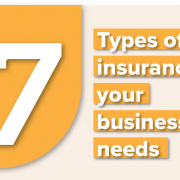Business Insurance over the festive season
With Christmas fast approaching, it is often the busiest and most stressful time of the year for many businesses. While we rejoice for the increase in customers and sales, the increase in activity can mean extra risk for your business. Now is the time to check in to ensure you have enough financial protection to keep your business safe over the festive season.
Here are a few things you’d like to keep in check:
- Increase in foot traffic
During that time of year, one of the first things that comes to mind is crowds. Whether you run a retail store or a hospitality venue, you can expect an increase in foot traffic. The increase in visitors will also increase the likelihood of an incident or accident occurring. Risk in injury claims not only applies to customers and patrons. This also applies to employees seeing an increase in workload and financial stresses. - Increase in stock
With the festive season, if you’re in retail or manufacturing, you’re likely carrying increased stock levels. Make sure you revise how much stock you are actually carrying and see if your current policy will cover that cost. In line with this, ensure that the extra goods you’re getting delivered have adequate cover. - Increased chance of burglary and shoplifting
Over the Christmas break, whether you are operating with skeleton staff or are planning on closing completely, Christmas is prime time for burglary. We mentioned earlier how crowds increase the risk of injuries. Crowds also make it easier for shoplifters to steal merchandise without getting caught. The same goes for money, if you anticipate having extra cash on-site, make sure you’re protected. - Temporary staff and employee theft
Many businesses hire temporary staff to help out during the busy season and if not properly trained in safety procedures, accidents can easily happen. Unfortunately with the increase in staff, employee theft of merchandise or money tends to go up too.
In order to ensure your business is protected over the holiday season, take the time to carry out an audit and update where necessary sums insured and liability limits. Get in touch with Sarina Insurance today and make certain that you have sufficient coverage to protect your business during the Christmas season.
Disclaimer: This article provides information rather than financial product or other advice. The content of this article does not take into account your objectives, financial situation, or needs. Please seek professional advice from your broker before acting on any information.












